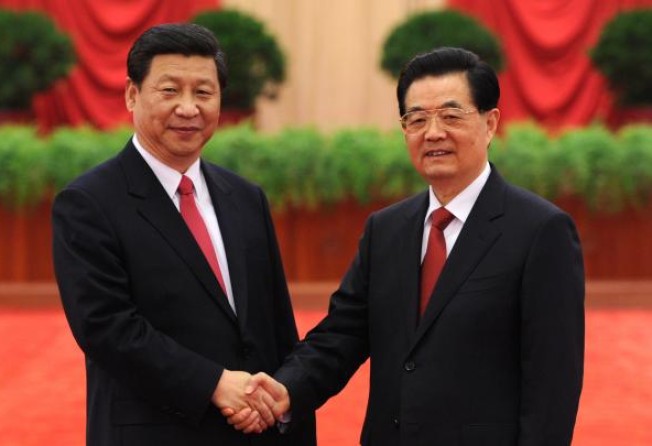Hu to thank for stronger cross-strait ties
Frank Ching credits the outgoing president for strengthening cross-strait ties, and Beijing's commitment to peaceful reunification

One of President Hu Jintao's greatest achievements during his decade in power has been the creation of a much stronger cross-strait relationship, one that is likely to last even after he gives up his last official post in March.
True, it was during his tenure that the Anti-Secession Law, which authorises Beijing to make use of "non-peaceful means" should Taiwan secede from China, was enacted. But he also pledged that China would "never give up efforts to seek peaceful reunification". Ironically, that law was followed by a major thaw in cross-strait relations, with leading opposition figures being invited to the mainland for high-level talks.
Attempts by Hu to move cross-strait relations onto a peaceful track were not without opposition on the mainland. One such sign was in a major address he gave in 2008 to mark the 30th anniversary of the "Message to Taiwan Compatriots" issued in 1979. That address, while underlining "firm adherence to the 'one China' policy", was silent on the "1992 consensus" - a term that straddles differences between Taiwan and the mainland on the meaning of "one China".
The vagueness of the "1992 consensus" is what enabled Beijing and Taipei to resume their dialogue after Ma Ying-jeou became president and to dramatically improve their relationship. Within Taiwan, the consensus acts as a fig leaf to allow both sides to co-operate while knowing that they disagree.
Hu's silence on the "1992 consensus" in 2008 suggests there was significant opposition on the mainland to any fudging of "one China". It is significant, therefore, to note that in his recent report to the 18th party congress, Hu, after pledging to "adhere to the one-China principle", went on to say: "The two sides of the Taiwan Strait should uphold the common stand of opposing Taiwan independence and of following the 1992 consensus."
By using this term in an official party document, Hu has made the "1992 consensus" Communist Party policy from which it will be difficult to deviate.
Hu voiced hope that the two sides will jointly explore cross-strait political relations. Such exploration, he said, would be conducted "under the special condition that the country is yet to be reunified". The mainland, it appears, is prepared to accept a prolonged situation when "the country is yet to be reunified".
Meanwhile, Hu said, "we should expand cultural exchanges to enhance a common sense of national identity, and further people-to-people contacts to cultivate mutual goodwill". So Beijing's next step is likely to focus on cultural exchanges.
Taiwan can take comfort from the fact that the framework devised by Hu will remain in place after his departure and that Beijing is now more committed than ever to a policy of peaceful reunification. Beijing has little choice but to keep working at improving communications and understanding between the two sides until, one day, the people of Taiwan actually look favourably on the idea of reunification.
Frank Ching is a Hong Kong-based writer and commentator. [email protected]. Follow him on Twitter: @FrankChing1